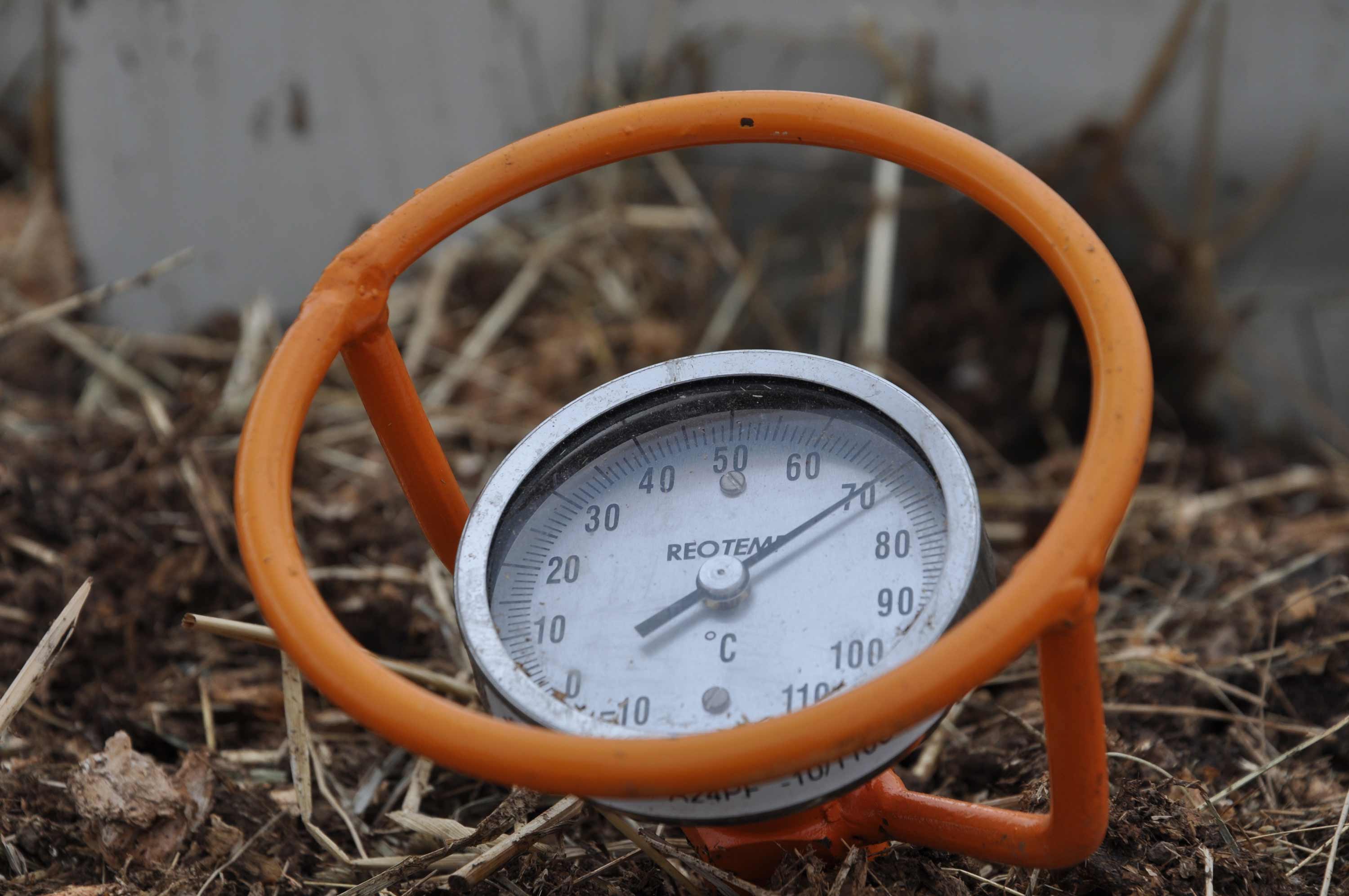A soil thermometer is a gardener’s best friend as spring approaches and it’s time to plant cool-season vegetables such as peas, kale, fava beans and radishes.
“With a thermometer, no guess work is needed. Soil temperature is the best indicator of when to plant each type of vegetable, no matter what climate zone you live in,” said Jim Myers, Oregon State University vegetable researcher. “They are available at garden centers and are inexpensive.”
Crops that germinate in the coolest soils (down to 40 degrees) include arugula, fava beans, kale, lettuce, pak choi, parsnips, peas, radicchio, radishes and spinach seed. When the soil temperature reaches above 50 degrees, Chinese cabbage, leeks, onions, Swiss chard, and turnips can join them in the garden.
At 60 degrees you can sow warm-season vegetables such as beans, beets, broccoli, Brussels sprouts, cabbage, carrots and cauliflower. But watch weather forecasts — beans will not tolerate frost and may have to be planted twice if the temperature goes below freezing.
Wait until the soil warms to above 70 degrees to plant warm-season vegetables such as tomatoes, eggplants, peppers, cucumbers, squash, corn and melons. It can take several weeks for tomatoes, eggplant and peppers to germinate in the garden. You can get a jump on the season, however, if you buy them already started from your local garden center. On the other hand, squash, cucumbers and corn grow quickly and are easy to start from seed.
To ensure success with early-season vegetable gardening, Myers advises buying cold-tolerant or short-season varieties. If you just can’t wait to plant, warm the soil with plastic mulch and use a cloche, fabric row cover or cold frame. The Extension publication How to Build Your Own Raised-Bed Cloche would be helpful.
Be prepared to carefully cover your plants with burlap, plastic or an old blanket or sheet if a hard freeze is forecast. Even a crop that’s germinated and starting to grow can be ruined by a late frost.
For more information on vegetable gardening, see Growing Your Own, a 24-page publication on the basics of gardening.

